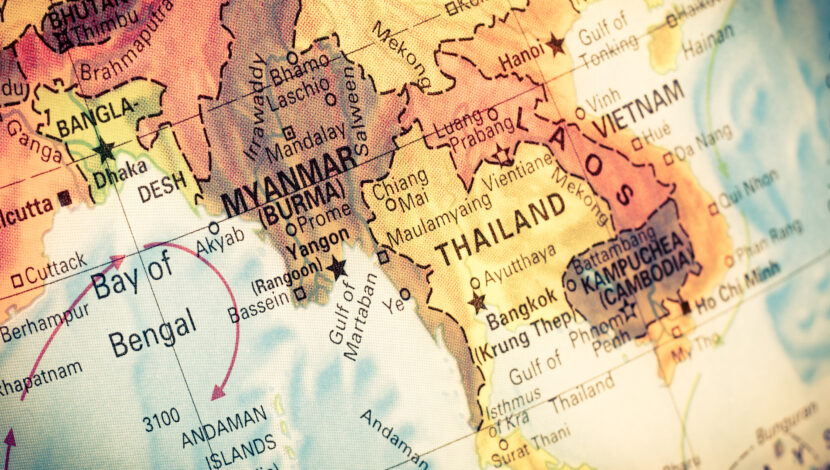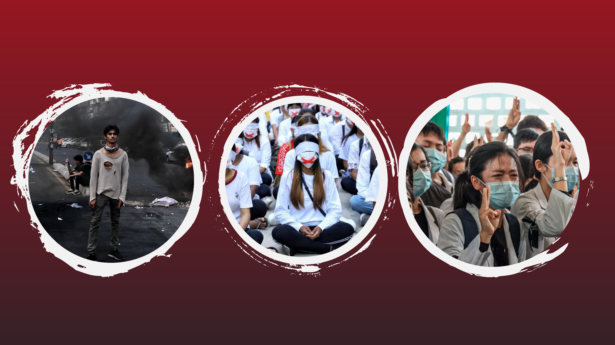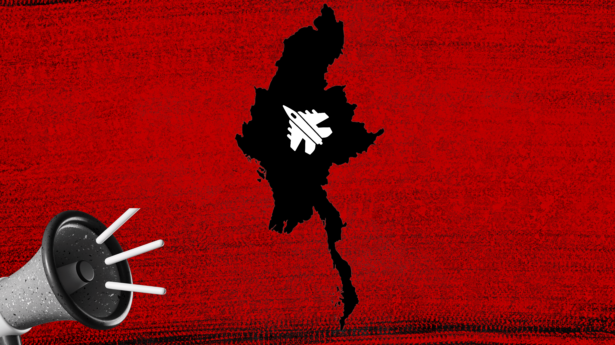The Unitarian Universalist Service Committee advances human rights through grassroots collaborations.
4 Actions the US Can Take to Address the Genocide in Burma

February 1, 2023
On February 1, 2021, the Burmese military attempted a violent coup aimed at establishing a completely totalitarian state bent on conducting “clearance operations” of Rohingya Muslims and other ethnic minorities.
In the two years since this campaign began, the junta has killed and displaced thousands through unconscionable acts of violence and gross human rights violations. Routine bombings, attacks on villages, and projects designed to terrorize the people of Burma have made international headlines and elicited strong rebukes from governments and civil society activists from across the world.
The United States has taken some small steps to address the violence of the military junta, including passing the BURMA Act. But there’s still so much more to be done. Thanks to our partners at the U.S. Campaign for Burma, we have clear guidance on what reasonable steps can be taken to hold the junta accountable. Here are four ways the United States can help end the genocidal violence happening in Burma.
Provide More Aid to Burmese Community Organizations Supporting People on the Ground
The junta regularly receives hundreds of millions of dollars in revenue from the sale of oil and gas and other capitalistic ventures. On top of this, humanitarian aid packages typically distributed by foreign governments and international bodies, ironically, go directly to the junta, which uses these funds to arm and train its military and carry out routine acts of violence against people across the nation.
If the United States wants to contribute to supporting the people of Burma, it will ensure that it starts putting funds in the hands of the community-based organizations working directly with those victimized by the junta’s violence. Funders in the international human rights movement should also ensure that these organizations are well resourced and vital funds are being used to serve those most in need.
Impose More Targeted Sanctions on Bad Actors
There are a countless number of military and government officials complicit in the violence committed by the junta. If the United States wants to truly support efforts to hold the junta accountable, it will impose sanctions on the most powerful of these actors, including the Myanmar Oil and Gas Enterprise, which funnels money directly from the sale of oil and gas into the junta, weapons, airplanes, and other tools used to terrorize the nation.
In coordination with Australia, Canada, and the United Kingdom, the United States is imposing sanctions on more entities and leaders directly contributing to the junta’s violence. These sanctions need to be expanded quickly and more rigorously to the business and government entities the junta relies on for power. Sanctioning is a form of accountability for governments that are committing acts of abuse; the economic penalties levied against these bad actors can serve as a deterrent to causing further harm.
Initiate a Global Arms Embargo
A global arms embargo means that nations would neither sell nor buy weapons from the Burmese military. The United States can—and should—use its considerable power to lobby other nations to keep arms out of the junta’s grasp to save lives and encourage peace.
The junta uses all of the weapons at its disposal to inflict as much terror, death, and chaos as possible on the people of Burma. Reducing access to these weapons will go a long way in saving lives and encouraging the junta to engage diplomatically with civil society and community-based organizations.
Sanction Burma’s Aviation Fuel Supply
Imposing sanctions on the junta’s supply of jet fuel will severely limit the military’s ability to launch airstrikes that destroy entire villages and kill many people already internally displaced. Airstrikes have become a common way to overtake certain parts of the nation and discourage people from supporting or joining rebel forces.
If the United States uses its power to cut off the jet fuel supply, thousands of lives can be saved and the military’s power will be drastically diminished.
These are just four modest steps the United States can take to end the genocidal violence that is a daily reality in Burma. UUSC continues to support our partners on the ground in demanding justice and accountability for those who’ve committed human rights violations in Burma.
Image Credit: Adobe

